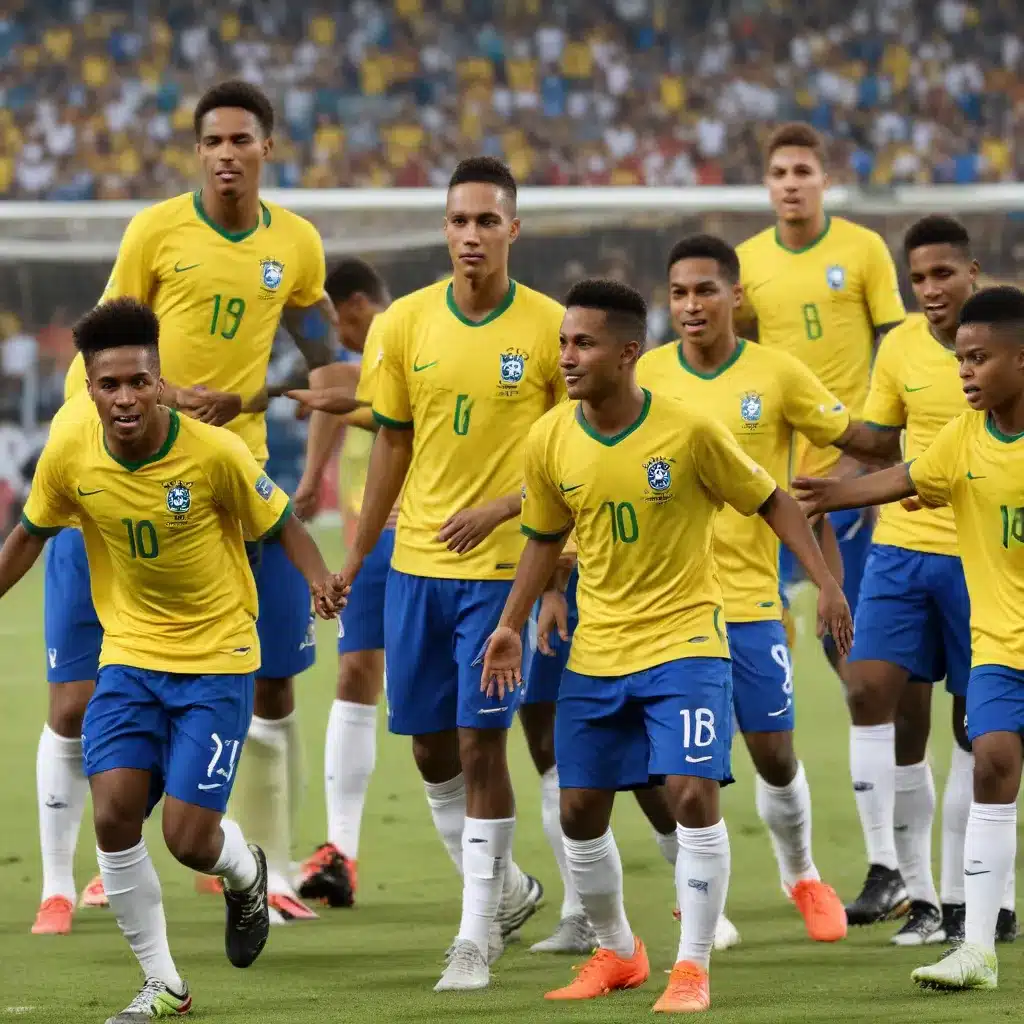
Talent Identification: The Foundations of Brazilian Football
At the heart of Brazil’s football dominance lies an unparalleled talent identification and development system, nurtured over decades. The country’s youth academies, or “escolas de futebol,” are the lifeblood of this system, scouring the nation for the next generation of stars.
From the bustling streets of Rio de Janeiro to the remote villages of the Amazon, scouts with an eagle eye for raw talent comb the country, searching for the next Pelé or Ronaldinho. These scouts operate within expansive scouting networks, leveraging local connections and a deep understanding of the game to uncover hidden gems.
The selection process is meticulous, with scouts assessing not just technical ability, but also a player’s physical attributes, tactical awareness, and mental fortitude. Trials and talent identification camps are held regularly, providing opportunities for young hopefuls to showcase their skills and catch the eye of the top clubs.
Nurturing the Next Generation: Training and Development
Once identified, these young talents embark on a rigorous journey of technical instruction and tactical coaching within the clubs’ renowned youth academies. Here, they are immersed in a football-centric environment that fosters their development.
The emphasis on technical mastery is unparalleled, with countless hours spent perfecting the fundamentals of the game – ball control, passing, dribbling, and shooting. Coaches employ innovative training methods, drawing inspiration from the country’s rich futsal heritage, to hone the players’ close control and decision-making abilities.
Tactical acumen is equally prioritized, with players receiving meticulous instruction on positioning, movement, and game understanding. The Brazilian approach to the game, with its emphasis on creativity, flair, and positional fluidity, is ingrained in the youth players from an early age.
Complementing the technical and tactical aspects is a strong focus on physical conditioning. Nutritionists, strength and conditioning coaches, and sports scientists work in tandem to ensure the players’ physical development keeps pace with their footballing skills.
Influential Factors: The Cultural and Infrastructural Foundations
The success of Brazil’s talent development system is underpinned by the cultural significance of football within the country. Football is not just a sport – it is a way of life, a unifying force that transcends social boundaries and brings the nation together.
From the bustling favelas to the affluent suburbs, the passion for the game is palpable. Children grow up kicking a ball, honing their skills on the streets and in makeshift pitches, dreaming of one day donning the iconic yellow and green jersey of the national team.
This deep-rooted football culture is complemented by the country’s robust infrastructure and resources. Brazil boasts a network of state-of-the-art football facilities, from world-class training centers to modern stadiums, all of which contribute to the holistic development of young players.
Crucially, the investment in football, both from the private and public sectors, ensures that the talent development system is well-funded and resourced, allowing clubs to attract the best coaches, provide cutting-edge training equipment, and offer comprehensive support services to their young prospects.
Challenges and Opportunities: Navigating the Evolving Landscape
While Brazil’s talent development system has been the envy of the world, it is not without its challenges. Socioeconomic barriers can hinder access to the best training facilities and resources, particularly for those from underprivileged backgrounds. The intense competition for talent within the country also means that many promising players may slip through the cracks.
However, the football landscape is rapidly evolving, and Brazil is embracing the technological advancements that are transforming the game. Data analytics, virtual reality, and cutting-edge scouting platforms are being integrated into the talent identification and development process, allowing clubs to uncover hidden gems and optimize their training methods.
Moreover, the growing globalization of football has opened up new opportunities for Brazilian talent. The country’s players are in high demand across Europe’s top leagues, with the likes of Neymar, Vinícius Júnior, and Gabriel Jesus showcasing their skills on the world stage. This exposure not only generates substantial transfer revenue for Brazilian clubs but also inspires the next generation of players to strive for greatness.
The Impact: Domestic Dominance and International Glory
The fruits of Brazil’s talent development system are evident in the country’s sustained domestic league performance. The Brasileirão, the top-flight league, is renowned for its competitiveness, with teams constantly unearthing and nurturing new talents. The success of clubs like Flamengo, Corinthians, and São Paulo in national and continental competitions is a testament to the depth of the talent pool.
But the true measure of Brazil’s footballing prowess lies in its international achievements. The Brazilian national team is the most successful in FIFA World Cup history, with five titles to its name. Iconic players like Pelé, Ronaldo, Ronaldinho, and Neymar have etched their names in the annals of the game, captivating audiences worldwide with their mesmerizing skills and flair.
The conveyor belt of talent from Brazil has not only enriched the global game but has also inspired countless young players around the world to pick up a ball and dream of emulating their heroes. The Brazilian way of playing football, with its emphasis on creativity, individual expression, and a deep-rooted passion for the sport, has become the benchmark for excellence in the beautiful game.
As the world continues to marvel at the footballing prowess of Brazil, the country’s talent development system remains the cornerstone of its enduring success. From the grassroots to the global stage, the unlocking of potential through this comprehensive and well-structured approach has firmly cemented Brazil’s status as a footballing superpower, a legacy that is sure to endure for generations to come.

